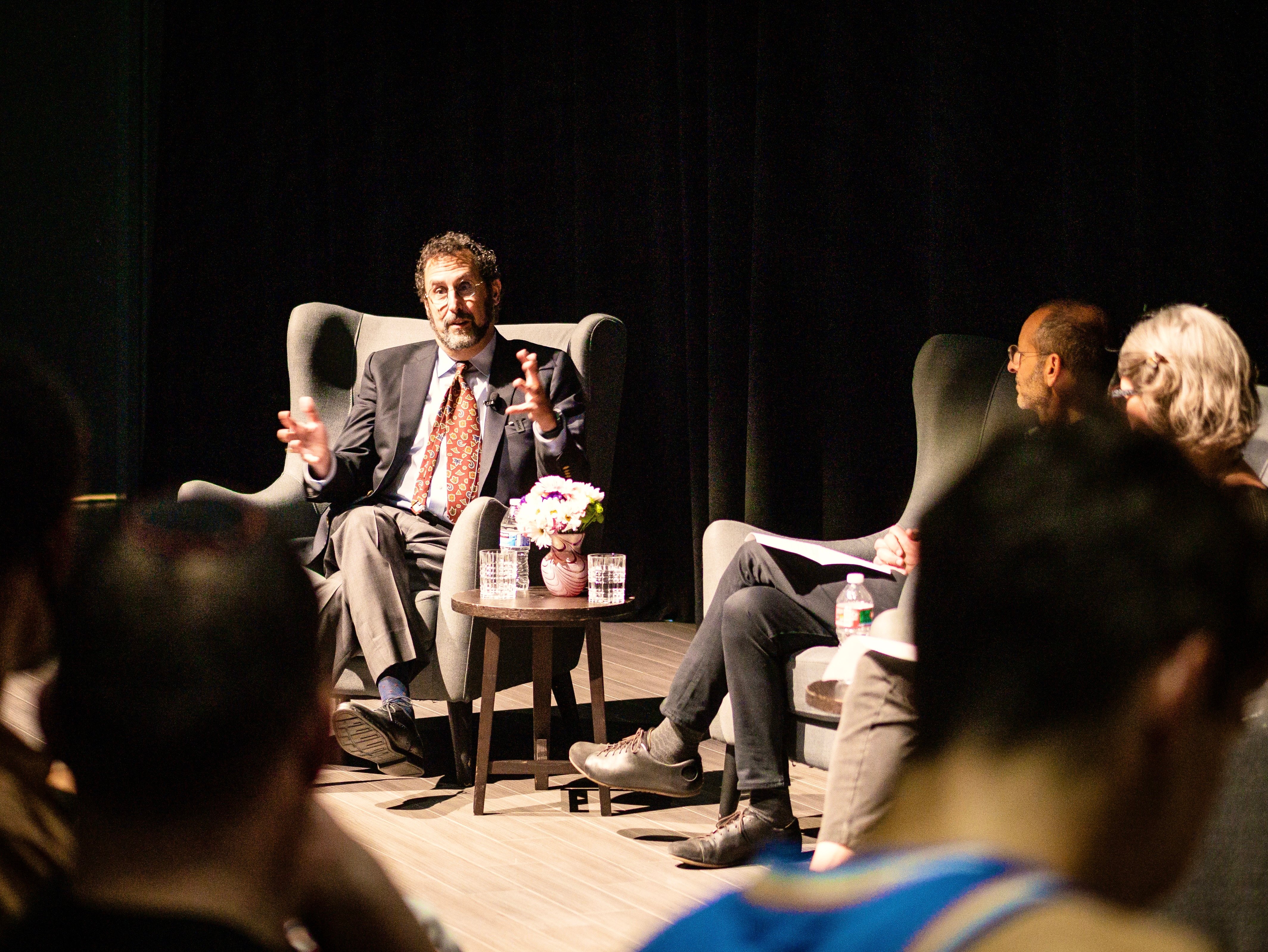Stanford students, faculty and members from the Palo Alto community gathered on the evening of Oct. 19 in the McMurtry Arts Building to listen to Pulitzer Prize-winning playwright, Tony Kushner, share his experience about writing the screenplay for “Munich” and its historical significance in Germany, Israel and the United States.
The film is based on the Munich Massacre — a terrorist attack at the 1972 Summer Olympics in Munich, Germany. Eight members of a Palestinian terrorist group, Black September, hopped the fence at Munich’s Olympic Village carrying rifles and grenades in duffel bags. They infiltrated the athlete’s dorms, killing two members of the Israeli Olympic team and taking nine other Israelis hostage.
A rescue mission was attempted and by the morning of Sept. 6, news agencies across Europe reported the success of the operation. 900 million people from around the world closely followed the hostage crisis and were filled with relief. Hours later, they were notified that the news was false and that all nine of the hostages had been killed in the rescue mission.
Kushner initially turned down the offer by Steven Spielberg to write the screenplay for “Munich.” He described his initial hesitation, saying, “It’s a fascinating subject, but I’ve never written a screenplay before.” He was also daunted by the amount of violence and action scenes in the film as his expertise lied in writing dialogue for theater. Eventually, Kushner broke out of his comfort zone and a 270-page draft for “Munich” was born.
“Munich” was Kushner’s breakthrough into Hollywood’s film industry. Coming from a theater background, Kushner was not used to getting sizable financial offers from producers and joked that “playwrights don’t even have health insurance.”
Kushner has always been interested in identitarian politics as he identifies himself as a Jew, a gay man and an American. After growing up in the deep South, he experienced discrimination firsthand for being part of multiple minorities, which only furthered his interest in political justice.
His goal in creating “Munich,” Kushner said, was to “find a way to address the incredibly anguished, bloody history that lay behind that terrible moment in Munich and the equally terrible history of deploying the Israeli assassination squad.” He knew that the film was going to be controversial as it deals with a “very painful subject.”
The weight of death is a constant theme throughout the film — each death is a shattering loss, no matter whether the character is “good” or “bad.”
“There isn’t a single death in the movie that gives you permission to relish it. It’s forbidden to enjoy the destruction of human beings,” he explains. In the moments before any character’s death in “Munich,” the character gives a little gesture that is so rawly human that it’s almost impossible for the viewer to feel joy.
“The relationship of an artist to the audience is the same as the unconscious to the dreamer,” Kushner said. The audience is in the dark as the performance unfolds and it warrants emotional responses such as laughter or tears. When the audience wakes up from this dream, they are free to interpret it as they please. Some will forget it immediately. Others will dismiss it but be prompted to remember it years later. And some will be so shattered that they won’t be able to get out of their seats.
On Sept. 2, Germany finally gave the financial compensation of $28 million dollars to the families of the murdered Israelis 50 years after the massacre.
Just over a month later, President Marc Tessier-Lavigne sent an apology on behalf of the University, acknowledging that Jewish admission rates were intentionally suppressed in the 1950s.
“It’s about time,” Kushner said of the email. “There’s a lot to apologize for. Young people shouldn’t be spared hearing about injustice just so that they can continue to exercise their privilege.”
Antisemitism, Kushner added, is still present on campus today as evidenced by the mezuzah that was torn off of graduate housing on the last day of Rosh Hashanah.
Kushner’s new film, “The Fabelmans,” comes out Nov. 11 and is a strong contender in the upcoming awards season. The film is a semi-autobiographical film about Spielberg’s childhood, and this is the fourth project that Kushner and Spielberg have collaborated on.
